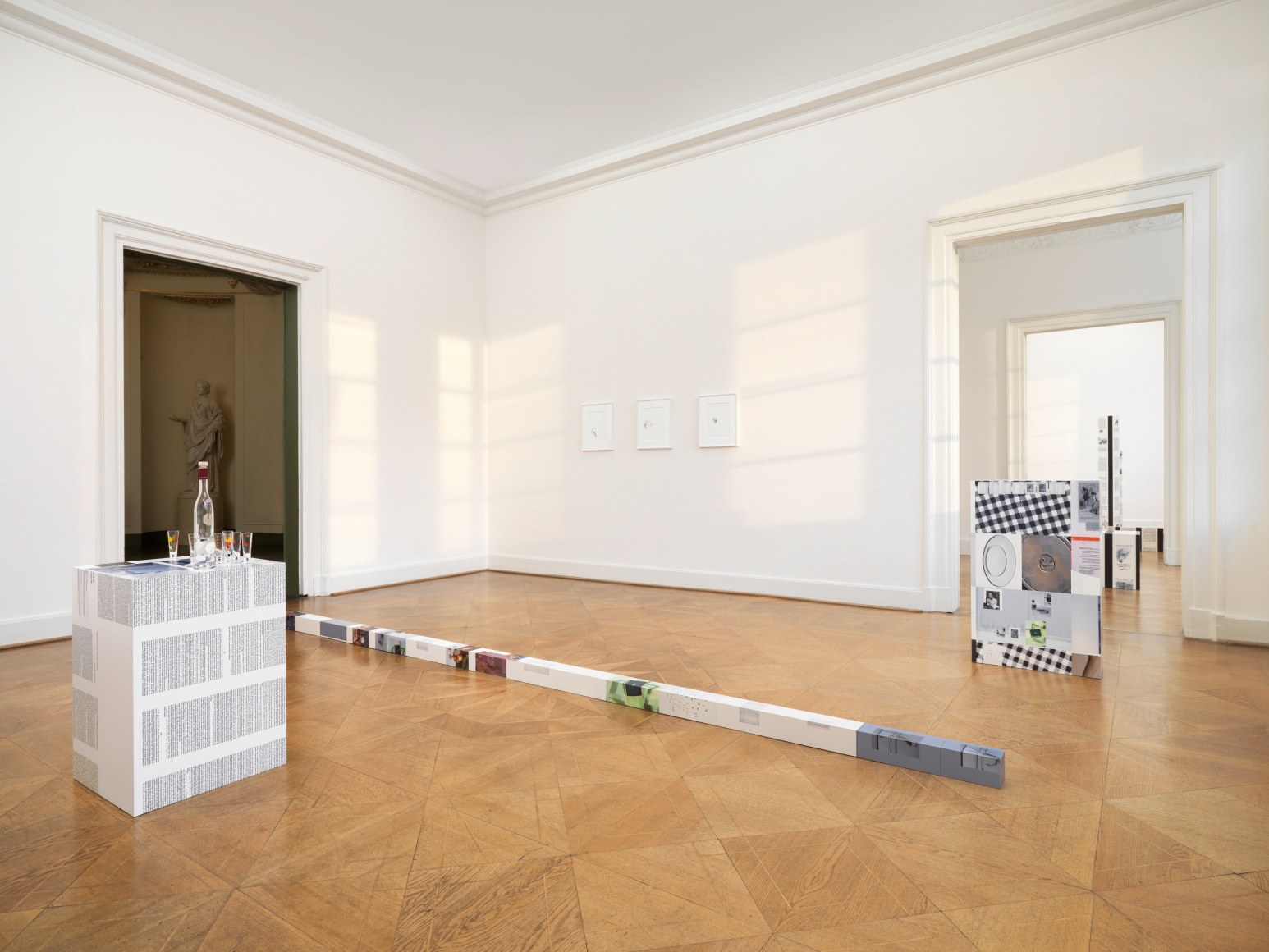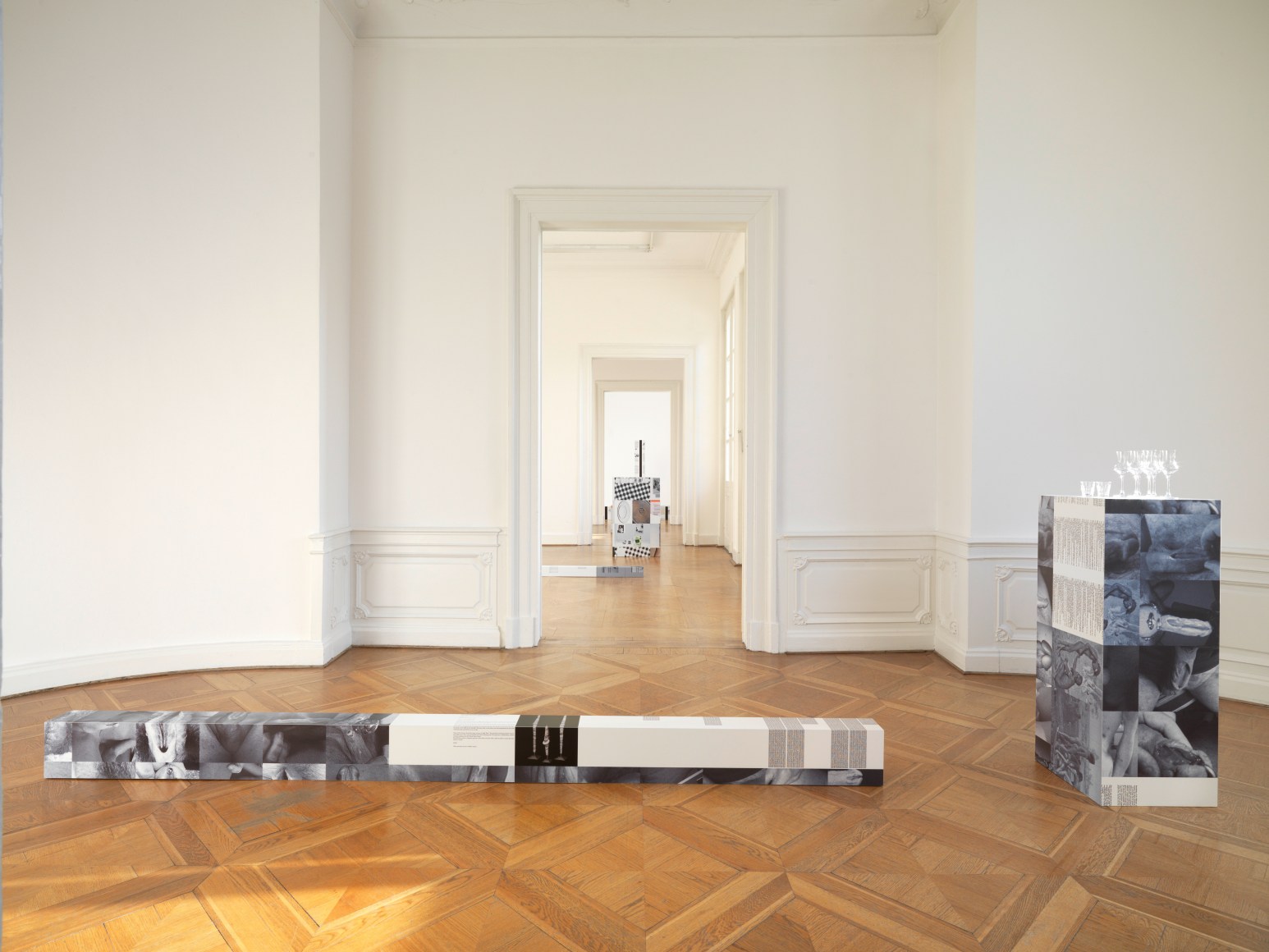The Kunstverein Braunschweig is presenting the first institutional exhibition of works by the New York-based artist Cheyney Thompson (*1975 in Baton Rouge, USA). Otherwise known for his painting, for the exhibition he produced a completely new series of works: seventeen large-format pedestal sculptures and several drawings done on a computer.
For some time now, sculptural works have been shifting into the focus of his creative work and supplement his oeuvre of conceptual paintings, which have already attracted a great deal of attention in the United States. With the aid of a parametric design program, Thompson produced plans for so-called pedestal sculptures. While they are entirely different in terms of their form, they all feature exactly the same overall surface measure of 3,200 square inches. However, this number is only one of several parameters that Thompson used to design the objects. He has been scrutinizing the conventional computer programs employed to design architecture, urban space, and objects for a long time. As early as the 1960s, the French engineer Pierre Bézier developed an algorithm—known as the Bézier curve—upon which many such systems are based today. At the same time, this mathematic formula indicates the beginning of a tendency to conceptualize and produce objects digitally, culminating in what is now known as parametricism. Thompson also used a parametric design program for his most recent pedestal sculptures and laid down a set of rules with which only seventeen forms can actually comply. A shift in meaning occurs, as the actual function of the pedestal loses meaning in favor of form: now, function follows form.
The objects developed on the computer not only call the function of a pedestal into question; they also challenge the conditions for an object becoming a work of art. What is effectively a plain substructure used to present exhibits is liberated of its function and becomes both a sculpture itself as well as the basis for examining the “superstructure”: as an art object, the pedestal sculpture is a projection surface that is not only of aesthetic but, in equal measure, of economic interest.
Thompson has been addressing production processes as well as the reception and distribution of art for many years. Key aspects of this activity are always basic elements such as color, form, or surface. In 2011, he compiled a kind of reader containing his past artistic analyses and sources, which he has now had printed on the surfaces of his pedestal sculptures.
The MIT Visual Arts Center in Cambridge, Massachusetts, recently devoted a large-scale survey to Thompson. In addition, his work has also been presented in various museum and group exhibitions, including at MoMA and P.S.1 in New York, at the Arnolfini in Bristol, the Tate St. Ives, the Museum Morsbroich, as well as at the Whitney Museum in New York.
(Source)


